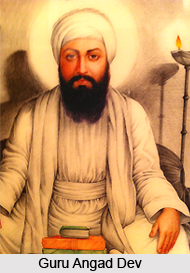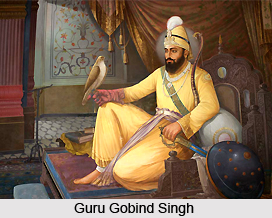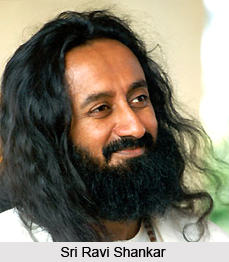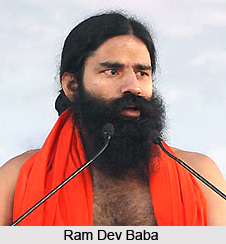 India takes pride and tries to live by the different theories and principles showed by the Hindu Religious Leaders. In Hinduism, Hindu Religious Leaders have played a vital role to verbalize the importance of the religion. Through the work of Ram Mohan Roy and later of Swami Vivekananda and his followers, Hinduism has become a world religion which has had a deep impact both on India and on the West at all cultural levels. There has also developed a Hindu political nationalism which connects Hinduism with the nation-state of India. Hinduism contains within it profound resources for peace and reconciliation - forces which demand expression, and which may contribute to finding solutions to the global problems.
India takes pride and tries to live by the different theories and principles showed by the Hindu Religious Leaders. In Hinduism, Hindu Religious Leaders have played a vital role to verbalize the importance of the religion. Through the work of Ram Mohan Roy and later of Swami Vivekananda and his followers, Hinduism has become a world religion which has had a deep impact both on India and on the West at all cultural levels. There has also developed a Hindu political nationalism which connects Hinduism with the nation-state of India. Hinduism contains within it profound resources for peace and reconciliation - forces which demand expression, and which may contribute to finding solutions to the global problems.
Some of the prominent Indian religious leaders are Swami Abhedananda, Advaita Acharya, Bala Prajapathi Adikalar, Mataji Krishna Priya, Chaitanya Mahaprabhu, Matsyendranath, Swami Nithyananda, Swami Subodhananda, Bijoy Krishna Goswami, Ramanuja, Talom Rukbo, Swami Vivekananda and many others.
Vaishnavism has been established in India since prehistoric times, times when even perhaps Indian history did not begin its unending journey. Believed to have descended directly from the Gods, Lord Shiva and Lord Brahma, Vaishnavism did not take much time to attract popularity. However, besides Shiva and Brahma, Vaishnavism is out-and-out dedicated to Lord Vishnu and his associated incarnations and embodiments. Thus, the list of the Hindu Holy Trinity comes to a full circle with Brahma, Vishnu and Shiva. Originated both with legendary illustrations and pragmatic theories, Vaishnavism serves as a separatist religious faith, differentiated from Hinduism. However, legends did not just bear the heavy duty of propagating and distributing this religious belief; in order to make Vaishnavism the leading order of those times, Vaishnava religious leaders had emerged forth into the scene. Descending from legendary moments into accounted and historical eras, precisely in the pre-Christian period, an overwhelming outburst of Vaishnava religious leaders could be witnessed taking to the road in order to make Lord Vishnu or Krishna known to the world.
 Ramakrishna Paramahansa
Ramakrishna Paramahansa
Sri Ramakrishna Paramhansa epitomises the very core of spiritual realisations of the seers and sages of India. Ramakrishna had in truth, interpreted Hindu religion in the true Vedantic spirit. His entire life was literally an undisturbed reflection of God. His life was a testament to truth, universality, love and purity. He was a Hindu religious teacher and an influential figure in the Bengal Renaissance of the nineteenth century. His teachings emphasised God-realisation as the highest goal of life, love and devotion for God, the oneness of existence, and the harmony of religions. He wished to bring about a synthesis among divergent faiths. Swami Vivekananda, most remarkable of the succeeding disciples of Ramakrishna and saint, was his disciple who founded the "Ramakrishna Mission".
A remarkable man of saintly character, Sri Ramakrishna Paramhansa represented a tradition of loving faith and service of humanity during the second half of the nineteenth century. He was a simple priest in the Kali temple at Dakshineswar near Calcutta (presently Kolkata). His simplicity was an emblem of wisdom and guide towards peaceful social life. Sri Ramakrishna was a man of faith and great virtue, who wholly believed in the Indian traditions. According to him all religions were alike and their decisive mission was realisation of God. Ramakrishna thus had adopted the modes of worship practiced by various religions.
Swami Vivekananda
Swami Vivekananda formerly known as Narendranath Dutta was one of the most influential spiritual leaders of the philosophies of Vedanta and Yoga and a major figure in the history of Hinduism and India. He was well respected in the west as well. He was the chief disciple of Ramakrishna Paramahansa and the founder of Ramakrishna Math and Ramakrishna Mission. Vivekananda was the first known Hindu Swami to visit the West, where he introduced Eastern thought at the World`s Parliament of Religions, in connection with the World`s Fair in Chicago, in 1893. Vivekananda in Chicago delivered a speech which put India at the world stage, and he was well taken and appreciated not just in Chicago, but elsewhere in America as well.
 Sri Ravi Shankar
Sri Ravi Shankar
Sri Ravi Shankar is a renowned spiritual leader whose humanitarian mission is to uniting the world into a violence free global family. He is seeking for global peace through service and fostering human values. His work covers the areas of conflict resolution, trauma relief and disaster management, stress elimination, prisoner rehabilitation, youth & women empowerment, education, community development, empowering individuals and the revival of ancient wisdom. He is the most multi-faceted activist unarguably in the world today. Sri Sri Ravi Shankar`s range of social work encompasses conflict resolution, disaster relief, women empowerment, prison reform, campaign against female infanticide and eradication of child labor. He is engaged in peace talks and counseling in conflicts zones around the world. His expertise in bringing people to the negotiating table in Sri Lanka, Kashmir and other places is widely acknowledged.
Sri Ramana Maharshi
Sri Ramana Maharshi was an Indian spiritual leader of 19th century. At the age of sixteen he left home for Arunachala. In spite of being a Brahmin he declared himself an "Atiasrami", a Sastraic state of non-attachment to anything in life. Sri Ramana was born in Tiruchuli, Madurai district in Tamil Nadu, on Arudra Darshanam day, into an orthodox Hindu Tamil family to Sundaram Iyer and Azhagammal. He was the second of four children of his parents. He was named Venkataraman at birth. His siblings were Nagaswamy (1877-1900), Nagasundaram (1886-1953) and sister Alamelu (1891/92-1953).
 Ramananda
Ramananda
A great spiritual leader, Ramananda lived as an ascetic before settling in Varanasi to study Vedic texts and the Philosophy of Ramanuja. He was fifth in succession in the lineage of Ramanuja, but his determination to ignore caste distinction led to a break with the philosopher`s other followers. With 12 disciples he founded his own sect, the Ramanandis, who practiced devotion to Lord Rama. His teachings banned inter-caste dining and the strict rule that all teachings and all texts must be in Sanskrit.
Pandit Shraddha Ram Phillauri
Pandit Shraddha Ram Phillauri is first nineteenth-century leader of Hindu orthodoxy in Punjab, born in 1837 at Phillaur (Jullundur district of Punjab). His family belonged to the Marud Joshi Brahmans and served as the Bhandari Khatri community of Phillaur. His father, a worshipper of shakti, earned his living as a priest.
The young Shraddha Ram was educated and trained for the same profession, but in a manner unique to the North-West. Pandit Shraddha Ram Phillauri studied both Sanskrit and his mother tongue of Punjabi, but because of the long Islamic authority in this area, he was forced to learn Persian and Urdu from a local maulawat (Islamic scholar). When he was nineteen, Shraddha Ram had started to perform his priestly role. One evening after reciting a section of the Mahabharata in public, Pandit Shraddha Ram Phillauri was arrested and debarred from Phillaur by the police who thought he was spreading the message of revolution. Pandit Shraddha Ram Phillauri travelled to Patiala, then Haridwar and again returned to Ludhiana, where he found a job with the Reverend J. Newton of the American Presbyterian Mission. His responsibility was to translate tracts and books into the languages of the North-West. His work included parts of the New Testament and the Holy Quran. The latter was translated from Persian. Later he returned home after leaving the job.
Shrimat Sadyojat Shankarashram
Swami Sadyojat Samvit Giri on February 27, 1997, was ordained as the eleventh Guru of our Parampara and was named Shrimat Sadyojat Shankarashrama. After 6 years long time the Guru Parampara got its Guru. He heralds from the Kodical family. He is a great scholar to lead the Community into the 21st Century and the community is fortunate to have Him as their guru. This very learned and well-versed personification in Vedant and Yoga in a short period of time has started several welfare schemes for the people of Chitrapur. His philanthropic emotionality has plenty of good things in store for the community.




















